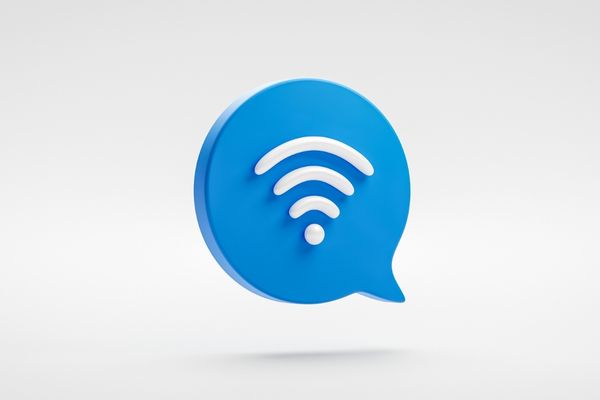By Lara Evans Bracciante
To help ABMP members stay safe in the digital world, we are running a short blog series on cybersecurity and how you can protect your personal information and your computer and digital devices from today’s bad actors. Here is the third installment on the best practices to use when accessing public Wi-Fi.
Let’s start with the ending: Free public Wi-Fi is safer than it used to be, but it can still be risky. Open networks are ripe for hackers to steal your data in real time. So, if you’re at a coffee shop, an airport, a hotel, or anywhere offering public Wi-Fi, follow these pointers to help ensure your digital security:
1. Only connect to encrypted websites.
You’ll know it’s encrypted if the website address—and all the pages on the website—use HTTPS (not HTTP). The “s” stands for secure, ensuring the site uses encryption. If the browser is only showing the main part of the address and not the pretext, click into the web browser like you were going to type in it to reveal the full address.
![]() >>>
>>>![]()
2. But know that hackers understand HTTPS too.
Hackers can make a scam site where indeed the data is encrypted, but it’s still coming to them, where it will be decrypted. So, in addition to connecting only to sites with HTTPS, here are some additional safety tips:
- Only visit established, mainstream websites when on public Wi-Fi, and not new, random, or click-bait sites.
- Consider using a virtual private networks (VPN). VPNs run your online activity through an encrypted, closed network, so even though you’re using public Wi-Fi to connect, your website perusal is secure. The key is to choose a reputable VPN, which probably means it won’t be free. These are the 2022 top VPN picks from PCMag.[link to https://www.pcmag.com/picks/the-best-vpn-services]
- Use your phone or your phone’s hotspot. Yes, this means you’re using your mobile data, but if you need to transfer money or log in to a site—or conduct any transaction involving personal information—using your mobile data is much safer and therefore totally worth it. Along those lines…
- Avoid accessing financial and other personal information when on public Wi-Fi. Assume you are being “watched.”
- If you’ve logged in to a website, be sure to log out, so your session doesn’t stay open.
- Heed the warnings! Website browsers, as well as your devices, may alert you to scams and malware on websites. Pay attention to the alerts and keep your software up to date.
When using public Wi-Fi, ask yourself if you’re OK with someone reading over your shoulder viewing your activity. If the answer is no, be safe and smart, and wait until you’re on a private network.
author bio
Lara Evans Bracciante is ABMP’s senior director of Information Technology & Member Service Operations.
Related Content
- “Avoiding Social Engineering Scams: How to Spot Hackers Knocking at Your Digital Door” (Part 1 of ABMP’s cybersecurity blog series). Read Part 1 here: /updates/blog-posts/avoiding-social-engineering-scams-how-spot-hackers-knocking-your-digital-door
- “Antivirus Software can Help Protect You and Your Clients” (Part 2 of ABMP’s cybersecurity blog series.) Read Part 2 here: /updates/blog-posts/antivirus-software-can-help-protect-you-and-your-clients-5
